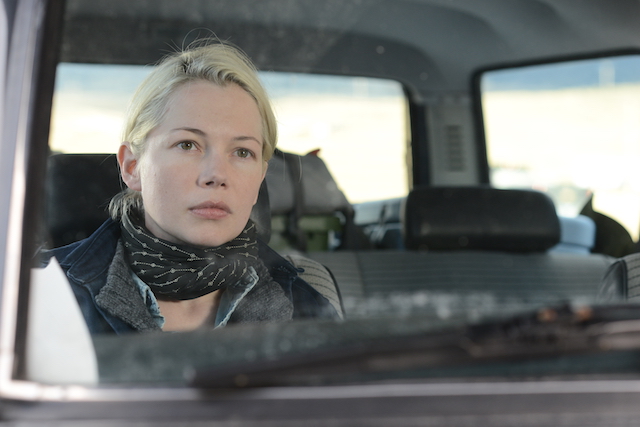‘Certain Women’ Kelly Reichardt’s “Certain Women” has three stories. One features a hostage situation. In another, we watch someone bartering for sandstone. They don’t sound like they should be in the same movie: one too exciting, surely, for a little indie; the other minor even for a movie bound for the “Understated Dramas” category on Netflix Instant. Yet the way they’re handled, they feel of a piece — told with the same eccentric voice, both more interested in minor details than big ones, and both so quiet, even the hostage one, that we don’t realize how momentous each one is until they’re over. The first one gets us into its strange groove. We patiently watch Laura (Laura Dern), a small town, Montana lawyer as she deals with a client (Jared Harris) who suffered an injury at work, but screwed up the paperwork that would force his employer to pay his medical bills. The way it tells its story is so humdrum we might be shocked when things escalate to an armed showdown. But even when that happens, Reichardt stays patient: Called in to talk to the assailant, despite no prior experience in pressure cooker situations, Laura gets briefed by a calm officer (John Getz), their entire nuts-and-bolts exchange playing out in full. He’s not overemphatic or even frazzled; he speaks to her with the same inflection with which one would inform a housesitter where the kitty litter box lives. The gear-shift to a story about another woman, Michelle Williams’ Gina, rolling up to an old-timer (Rene Auberjonois) and negotiating for a pile of sandstone is in no rush either. It’s not just about the haggling. Their discussion speaks, without them saying a word about it, to grief and remorse and a life that has passed them by, as well as to their own little missed connection. The third is the most conventional anthology movie tale: Lily Gladstone plays a lonely rancher, Jamie, who finds herself drawn to a frazzled night school teacher, Beth (Kristen Stewart). It could be a crush; maybe, because it’s KStew in the role, Jamie could simply be starstruck. RELATED: Interview: Kristen Stewart talks “Certain Women” and how we all need to relax But we know, by this point, not to read into the stories so much that we reduce and betray them. It’s an elegant design, this structure Reichardt has chosen, and the very different stories — by author Maile Meloy — she’s decided to adapt. Reichardt largely refrains from “Short Cuts”-y connection-making; Laura swings by for a cameo in the third one, while Gina’s husband (James LeGros) is seen sleeping with Laura in the movie’s post-credits scene — a never-remarked-upon bit that exacerbates the marital tension bubbling under the second. Reichardt trains us in other ways to not expect much: She leaves in all the “boring” parts — the light bickering, the monotonous traveling, the mundane errands — most movies elide, and most literature collapses inside a single sentence. As with all Reichardts, there’s a strange droney quality to certain passages; when characters are on the road or on foot or (in “Meek’s Cutoff”) plodding along by wagon, we really see them traveling. And yet her movies, in some undefinable way, don’t play like your typical art film fare; they don’t play like Béla Tarr knockoffs. She’s found a way, somehow, to make austere cinema like no other — that feel almost casual, off-hand, not show-offy, organic to the films that contain them. She doesn’t make shots that make cinephiles crow, “You’ve got see this shot!” It’s all part of Reichardt plan to make our brains chill out, partly so she can deliver them a light wallop. Each story in “Certain Women” ends with a disappointment, ones that will haunt the characters forever, but probably not in ways that will make them change course. They’re destined to be those memories that will rise up years, decades down the line, out of nowhere, half-remembered moments that shaped us in ways we can never define. “Certain Women” acts the same way: It lingers, sticking in the back of your brain, hitting you long after it’s over.
Director: Kelly Reichardt
Stars: Laura Dern, Michelle Williams
Rating: R
4 (out of 5) Globes
Kelly Reichardt’s ‘Certain Women’ sneaks up on you

Sundance Selects
Follow Matt Prigge on Twitter @mattprigge


















